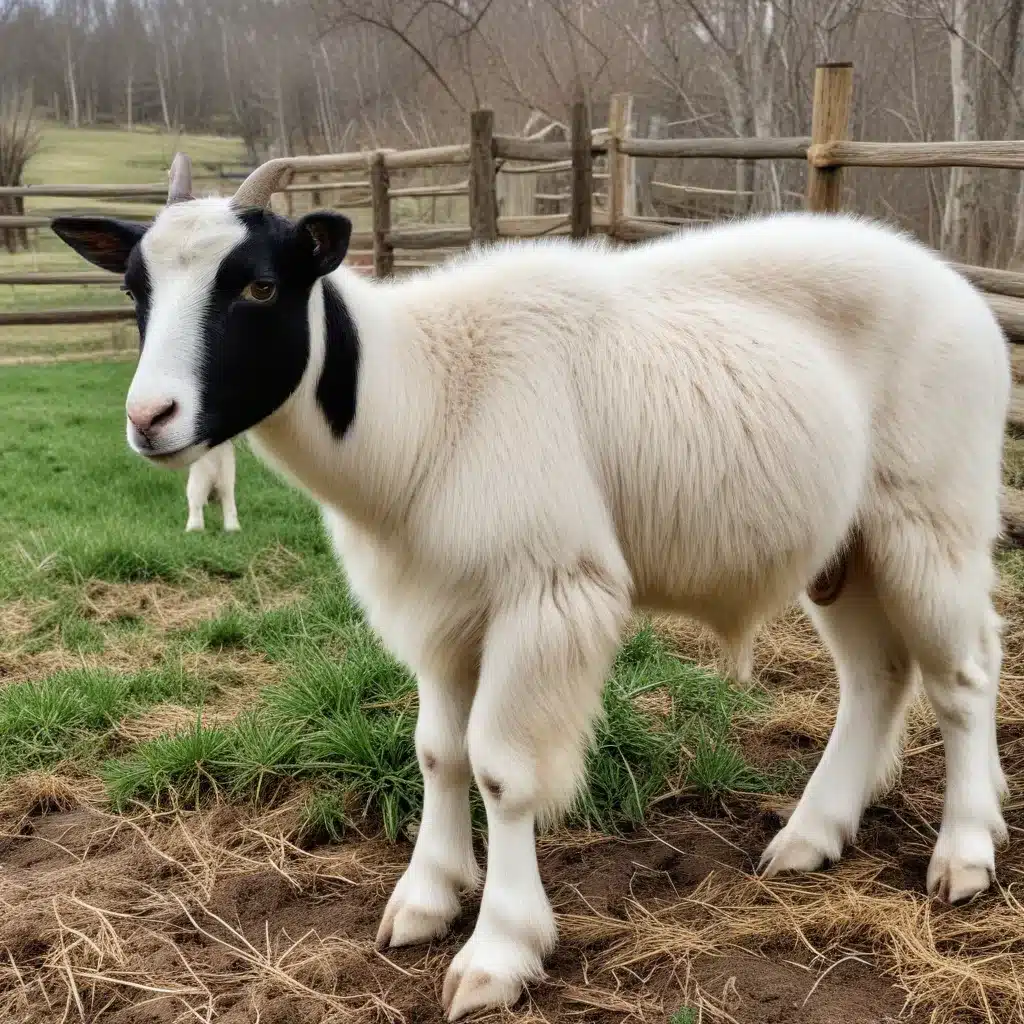
When Kristy and I first discussed the idea of starting our own farm, it may have seemed like a “crazy” notion at the time. But now, as the owners of Rêves de Moutons (French for “Sheep Dreams”), we couldn’t imagine our lives any other way. Goats and sheep have become the heart and soul of our 10-acre property, and through their milk, wool, and weed-clearing abilities, they’ve helped us build a thriving farm-based business.
Goat Breeds and Characteristics
If you’re considering adding goats to your homestead, there are a few key factors to keep in mind. First and foremost, goats are highly social animals and should never be kept as singletons. They thrive on the “buddy system,” so plan to house at least two goats together.
When it comes to breeds, some popular options include Nubian, Alpine, and Nigerian Dwarf. Nubians are known for their large, floppy ears and are prized for their rich, creamy milk. Alpines are hardy, versatile dairy goats that also produce a decent amount of meat. Nigerian Dwarfs, on the other hand, are diminutive in size but pack a big personality.
Regardless of the breed, goats are natural foragers and love to explore their environment. They’re skilled climbers and will happily perch on anything they can find, from large rocks to the top of your chicken coop. This curiosity, combined with their tendency to “test” fences, means you’ll need sturdy, secure fencing to keep them safely contained.
Sheep Breeds and Characteristics
If you’re more interested in raising sheep, there are also several breeds worth considering. St. Croix Hair Sheep, like the ones we have on our farm, are a great low-maintenance option. They’re parasite-resistant, don’t require shearing, and have a calm, friendly disposition.
Another popular choice is the Shetland Sheep, a small, hardy breed known for their soft, lustrous wool. Shetlands come in a wide range of natural colors, making them a favorite among handspinners and weavers.
Unlike goats, sheep are grazers, content to munch on pasture grasses and hay. They’re also generally less mischievous, preferring to stick close to their flock rather than trying to escape at every opportunity. However, they do require careful parasite management, as internal parasites can quickly become a problem.
Farm Infrastructure and Setup
Regardless of whether you choose to raise goats, sheep, or a combination of the two, there are some essential farm infrastructure elements you’ll need to consider.
First and foremost, you’ll need a well-designed barn or shelter to protect your animals from the elements. This should provide ample space for them to move around, as well as separate areas for feeding, resting, and kidding/lambing. Proper ventilation is also key to maintaining a healthy environment.
Fencing is another crucial component of your farm setup. As mentioned earlier, goats are skilled escape artists, so you’ll want to use sturdy materials like cattle panels or woven wire. Sheep, on the other hand, may be content with a basic electric or netting fence, as long as it’s tall enough to deter predators.
Lastly, don’t forget about pasture management and feeding systems. Rotational grazing can help maximize the productivity of your land, while automated or gravity-fed watering systems can save you time and effort.
Breeding and Reproduction
One of the most rewarding aspects of raising goats and sheep is witnessing the birth of new kids and lambs. Both species have a gestation period of around 150 days, and breeding cycles typically occur in the fall.
During kidding and lambing season, be prepared to spend extra time monitoring your expectant mothers. It’s not uncommon for me to use a WiFi-connected camera to check on the animals throughout the night, as they tend to go into labor when the rest of the farm is fast asleep.
Once the babies are born, it’s essential to provide them with proper nutrition and care. Ensure that they’re able to nurse from their mothers, and be ready to offer supplemental milk if needed. Carefully track their growth and development, as this will help you make informed decisions about weaning, breeding, and culling.
Health and Veterinary Care
Maintaining the health and well-being of your goats and sheep is paramount to a successful farm operation. Common issues to watch out for include parasites, respiratory infections, and hoof problems.
Implementing a robust parasite control program is crucial, as internal parasites can quickly become a major problem, especially in wetter climates. Regular fecal testing, deworming, and pasture rotation can all help mitigate these challenges.
Vaccination is another key aspect of preventative care. Work closely with your veterinarian to develop a vaccination schedule that addresses the specific threats in your area, such as Clostridium perfringens (enterotoxemia) or caseous lymphadenitis.
Hoof care is also essential for both goats and sheep. Overgrown or misshapen hooves can lead to lameness and other serious issues. Be prepared to trim your animals’ hooves on a regular basis, or consider investing in a hydraulic hoof trimming chute to make the process easier.
By staying on top of your animals’ health, you can ensure that your goats and sheep remain happy, healthy, and productive members of your farm family.
At Rêves de Moutons, our goats and sheep are the backbone of our operation. They provide us with delicious cheese, warm wool, and even help maintain the land by clearing weeds and brush. But more importantly, they’ve become beloved companions, enriching our lives in ways we never could have imagined.
If you’re considering adding these remarkable animals to your homestead, I encourage you to reach out to experienced farmers and do plenty of research. With the right knowledge and preparation, raising goats and sheep can be an incredibly rewarding endeavor. And who knows, maybe one day you’ll be living out your own “sheep dreams” on a farm of your own.
For more information on Crooked Pines Farm and our farm-to-table products, be sure to visit https://www.crookedpinesfarm.com.


